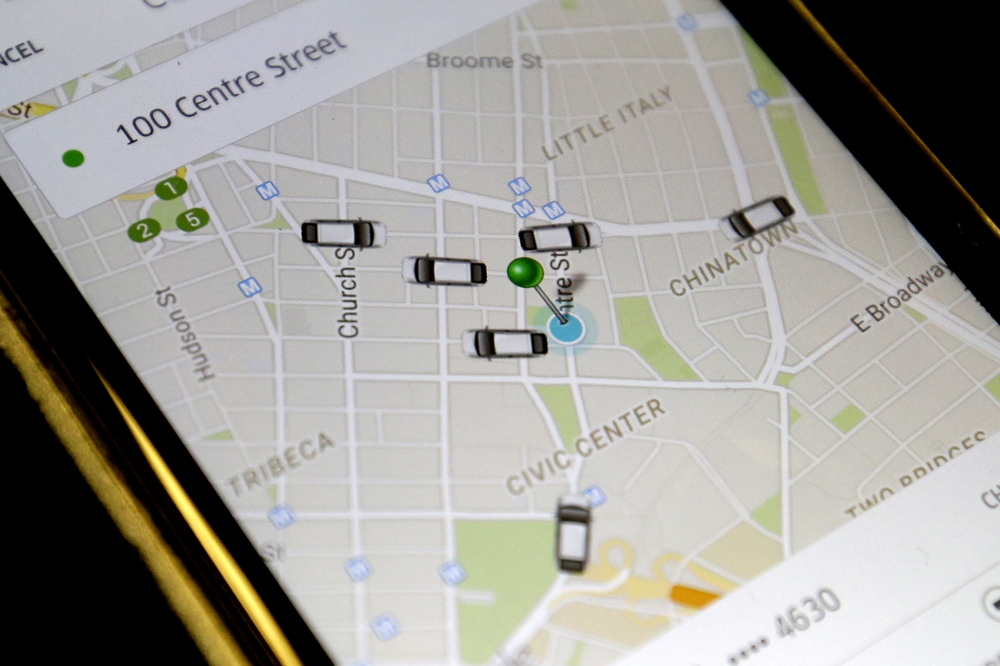Following a game plan it has used in cities across the country, ride-sharing service Uber has convinced Portland to negotiate a temporary agreement on how to regulate the company’s activity while city officials try to hash out a permanent set of rules.
Over the initial objections of one of its members, Portland’s Transportation, Sustainability & Energy Committee voted unanimously Wednesday to initiate the negotiation process for a temporary operating agreement that both Uber and the city would have to sign.
The committee voted 3-0, with Chair David Marshall absent, to direct city Corporation Counsel Danielle West-Chuhta to work out an agreement that would address basic safety concerns such as vehicle inspections and criminal background checks for drivers of the service, which connects passengers and drivers through a mobile app.
However, Councilor Kevin Donoghue initially expressed a strong aversion to negotiating what he described as a “proto-ordinance” with the San Francisco-based company, saying it would not be a responsible way to govern.
“I don’t think you should have to negotiate for an ordinance with the entity that would be regulated by the ordinance,” he said.
Donoghue argued that city officials might be tempted to adopt a permanent ordinance that resembles the temporary agreement, rather than working one out from scratch that was not influenced by Uber.
But the other two committee members at the meeting, Justin Costa and acting Chair Jon Hinck, disagreed. They argued that the city should establish a set of basic, safety-oriented rules as quickly as possible even as it works toward passing broader, permanent regulations.
“We have the worst scenario, which is nothing at all,” Costa said.
Uber has been operating as an unregulated service in Portland since October.
‘NO COMPANY SHOULD GET A PASS’
Uber and other services like it have generated controversy in cities around the globe, with critics accusing them of operating unlicensed taxi services that undercut more traditional competitors.
In Portland, taxi drivers must be individually licensed, pay annual fees, carry special liability insurance and submit to random vehicle safety inspections by the city. Uber drivers are not required to do any of the above, although the company says it imposes its own rules and standards to ensure passenger safety.
Uber Policy Associate Dave Barmore told the committee that in the more than 300 cities in which Uber operates, many have agreed to negotiate temporary and even permanent operating agreements with the company. Uber provided the committee with sample agreements from other cities, including Detroit, Spokane, Washington, and Portsmouth, New Hampshire.
It also has worked out an agreement with insurance-industry representatives regarding the appropriate insurance standard for drivers, Barmore said. He said Uber is lobbying the Maine Legislature to adopt that standard.
During a public hearing that preceded the committee vote, representatives of the taxi industry criticized the company’s approach to gaining acceptance in cities where it operates.
Racheal Doyle, treasurer at Portland-based 207 Transportation LLC, said Uber’s strategy is to enter a new market without asking local officials to negotiate any sort of agreement. The officials don’t take notice until after the service has gained popularity, making it politically difficult for them to impose strict regulations.
“My feeling is that no company should get a pass,” Doyle said. “I think they should have to comply with regulations and then ask for an exception.”
COUNCILOR FINDS ‘AREA THAT’S GRAY’
The committee members also weighed in on three proposed drafts of a permanent city ordinance. Two of the three versions would treat Uber and its drivers in much the same way as other taxi and livery services. For instance, every Uber driver in Portland would have to pay $300 for a commercial license, be subject to annual and random vehicle inspections, and be required to carry insurance coverage that is higher than the state minimum for noncommercial drivers.
A third draft, edited by an Uber representative, would exempt ride-sharing drivers from individual licensing, fees, random inspections and commercial-grade liability insurance.
Barmore indicated after the meeting that if the city chooses to regulate Uber in a similar manner to taxi and livery services, the company may not be able to do business at all.
“I think it would be very difficult for us to operate in Portland,” he said.
The committee did not vote on the drafts, but did ask questions and offer various opinions to city staff.
Of the three councilors, Donoghue was the most adamant in expressing that Uber should be treated just like other car services.
One of the questions he raised was whether using a mobile app, as Uber drivers do, fundamentally changes the nature of the service they provide. He asked West-Chuhta if it would be a violation of the current city ordinance for him to pick up a stranger in his personal vehicle, negotiate a price and drive the passenger to his or her destination. He then asked if it would make a difference whether or not he did so with the help of an app.
“You’re in an area that’s gray, that the ordinance hasn’t addressed,” she said.
J. Craig Anderson can be contacted at 791-6390 or at:
Twitter: jcraiganderson
Send questions/comments to the editors.




Success. Please wait for the page to reload. If the page does not reload within 5 seconds, please refresh the page.
Enter your email and password to access comments.
Hi, to comment on stories you must . This profile is in addition to your subscription and website login.
Already have a commenting profile? .
Invalid username/password.
Please check your email to confirm and complete your registration.
Only subscribers are eligible to post comments. Please subscribe or login first for digital access. Here’s why.
Use the form below to reset your password. When you've submitted your account email, we will send an email with a reset code.